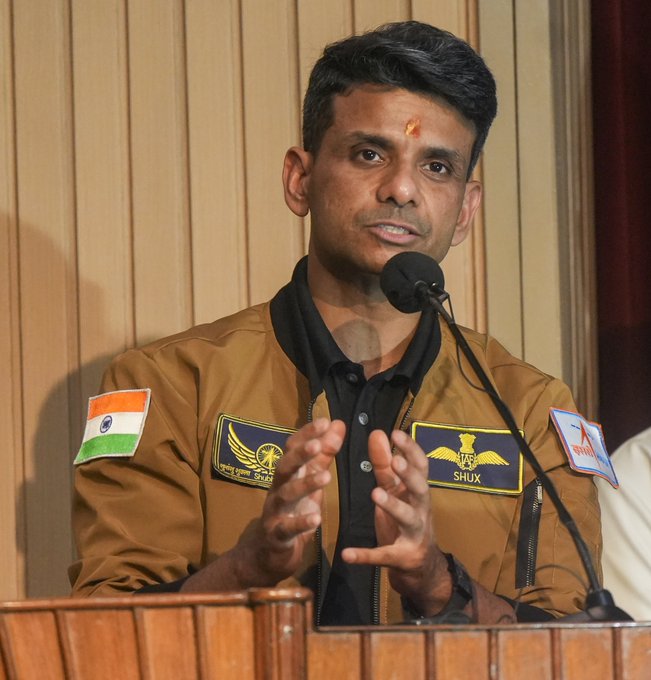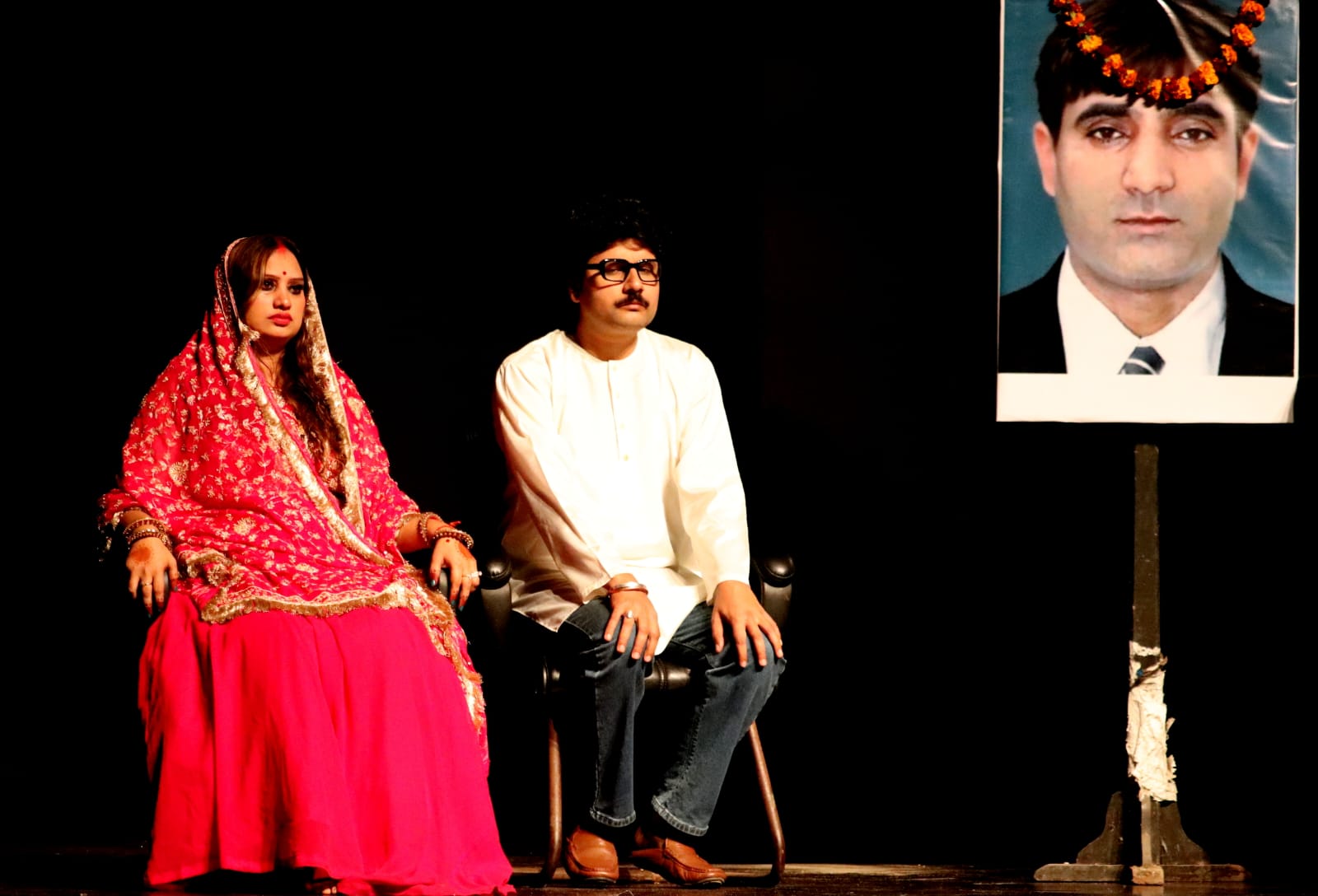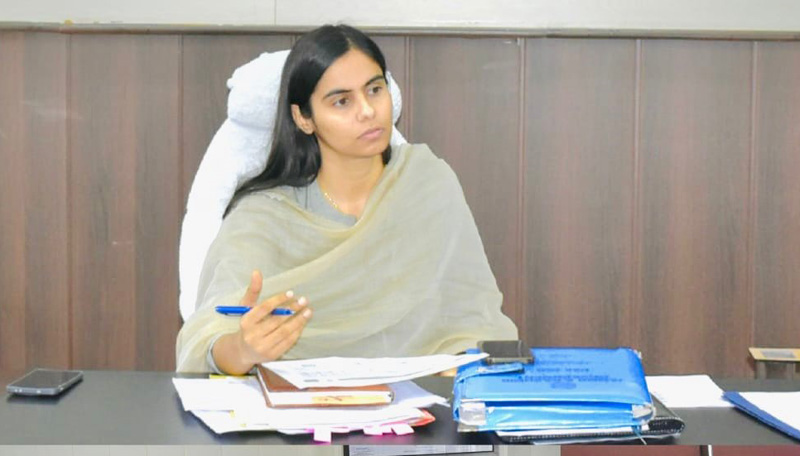Panaji: Indian Air Force Group Captain Shubhanshu Shukla, the first Indian to reach the International Space Station (ISS), said on Friday that once a person leaves Earth, personal and national identities fade, and the entire planet becomes one’s identity.
Speaking in Goa at an interactive session titled “Igniting Minds, Exploring Frontiers: The Convergence of Space, Education, and Industry”, Shukla said that in space, humanity transcends nationality.
“When you’re in space, you stop identifying with a particular country or region. The Earth itself becomes your home,” he said, addressing students from CISCE-affiliated schools virtually. “You don’t zoom into any one continent or country — you just look at Earth and think, this is where I live.”
Shukla explained that identity evolves with life’s stages — from one’s family to one’s school, city, and country. “But when you leave the planet, your planet becomes your identity. It’s an incredibly powerful feeling,” he said.
Describing his time aboard the ISS, Shukla said it felt like “working in an office with the best view possible.” Seeing Earth from space, he added, deeply changes one’s perspective: “From above, you realise how small and insignificant we really are, no matter how important we may seem on Earth.”
He recalled feeling emotional when he first saw India from orbit. “A NASA astronaut told me we were passing over India and asked if I wanted to see it. Watching the entire country illuminated at night was an overwhelmingly beautiful moment,” he said.
Referring to Rakesh Sharma’s iconic remark to Prime Minister Indira Gandhi in 1984 — “Sare Jahan Se Achha” — Shukla said, “I now fully understand the sentiment behind those words.”
Reflecting on life in zero gravity, Shukla described sleeping in space as a “completely new experience.” “There’s no bed — you zip yourself into a sleeping bag and fix yourself in place. Otherwise, you’ll drift and wake up somewhere else,” he said with a smile.
He added that in space, you can sleep anywhere — on the floor, wall, or ceiling. “It’s like having bunk beds everywhere. You can just float and rest however you like,” he said.
Shukla also shared how his body adapted to weightlessness: “After a few days, I even felt like I was sleeping on a hard wooden bed — though I was literally floating in air. It’s fascinating how quickly the body adjusts.”
Group Captain Shukla completed his maiden space voyage in August as part of the Axiom-4 mission, a commercial spaceflight operated by Axiom Space with support from ISRO and NASA. His journey marked a historic milestone — he is the first Indian to board the ISS and only the second Indian to travel to space, after Rakesh Sharma.
At the start of the session, Dr Joseph Emmanuel, Chief Executive and Secretary of CISCE, said: “This interaction with Group Captain Shubhanshu Shukla will remain a defining experience for our students.”













